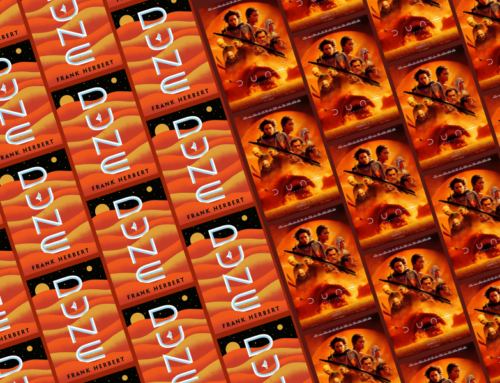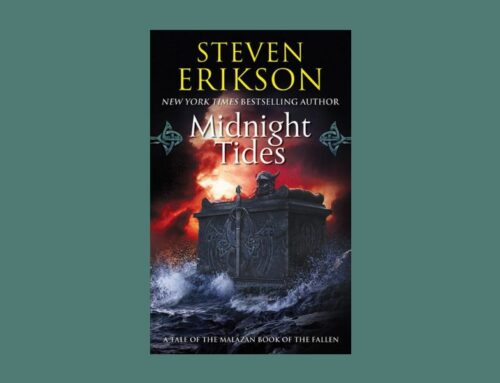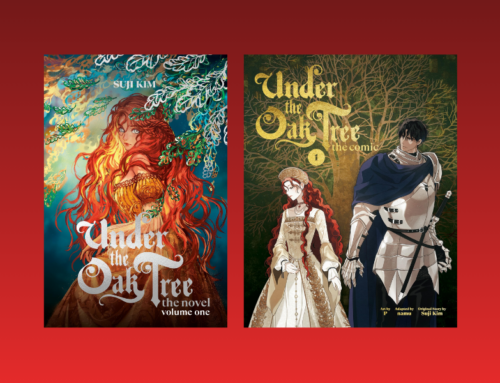In the nineties, six teenagers disappeared into a fantasy role-playing game. Only five returned. Nearly thirty years later, these broken adults are dragged back to discover the game isn’t finished with them yet. Kieron Gillen (The Wicked + the Divine) and Stephanie Hans (We Called Them Giants)’s award-winning, critical hit series is collected in a single, beautiful, oversized hardcover volume.
by Mike
Nerd-alert! This one is a critically acclaimed graphic novel (which is not normally a medium I’ve been very keen on, so go figure) that is mostly enjoyable for D&D geeks and/or general TTRPG buffs. It is not too long a series, and long story short: the set-up is a seemingly classic case of people getting whisked away into a game. I say seemingly, because the first few pages are so abruptly pivotal that, right off the bat, everything oozes with psychological dread.
The main characters are jaded, PTSD-suffering 40-somethings with broken families, failed marriages, and buckets brimming with misery. And they have to quite literally live and confront their teenage past, angst, and desires. The stakes: their lives, their sanity, and the life of a long-lost friend. At first. The author expands these stakes, the story, and urgency to an ever increasing scope, which sacrifices some of the impeccable psychological subtext that often deliriously becomes text in the first half for a more conceptual and philosophical second half. This might throw one off, but did not bother me too much. By that point I was swept up in the interpersonal turmoil of this unwilling adventuring party, and the grueling decisions and sacrifices they grapple with in the face of their younger selves and all the horrors and atrocities that have been committed, not only by them, but also in their wake, and some even in their name.
It is not exactly accurate to call the multi-forms into which this series morphs itself, frame stories. But it gets framed within the real world and real-world history in a similar way. And it’s delicious. It uses real-world references and the actual history of not only war-gaming and role-playing games but storytelling itself to leverage a philosophical thought experiment about how the stories we tell manifest and what the cost of ego-driven, violent power fantasies could be. Applause. Period. Die says something substantial about the violence and villainy that our entertainment and escapism have come to rely on.
Players and dungeon masters beware.
Here be mechanized dragons.
And a mirror for your more morally and ethically questionable exploits in the ether of the theater of the mind.
I love Die and deeply respect what it aims to convey.
Which is a statement that in context means so, so much more if you’ve finished it.





